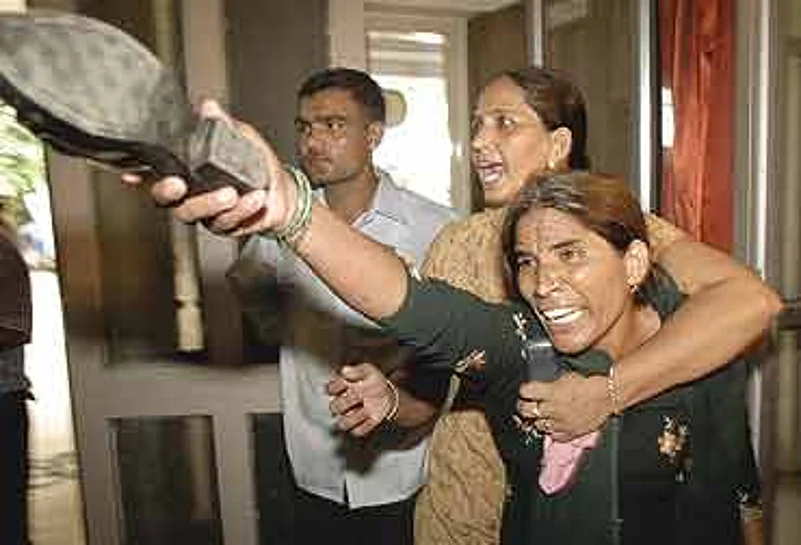
"The real trouble started in HMSI not because of low wages but because of mistreatment," agrees D.L. Sachdeva, secretary of the AITUC, the man behind the HMSI workers' efforts to form a trade union in the factory. "Most auto companies do their best to stop workers from forming trade unions, and the HMSI workers would never have approached me if things hadn't got so bad in their company," he feels. Sachdeva says as wages go, the HMSI workers are not badly paid, but compared to a company like Maruti, they are paid less than half. "But they understand that the HMSI started only three years back, so it will take time," he says.
But workers say they began to realise by January this year that it would only get worse for them. "The breaking point came when a notice was put up that the 2,000 of us who were recruited as trainees would not automatically be absorbed as employees after our training period was over. They were planning to get fresh batches of trainees to replace us," explains Sundeep. "That is when we decided that it was time to form a union."
The management did not take it lying down. Even before the trade union could be registered on May 30 this year, they had dismissed four workers and suspended 13. In all, 50 workers have been suspended so far for being associated with the union, according to Sachdeva. "Granted, these workers were a little impatient and made some mistakes—such as going on a go-slow—but the adamancy the management has shown at every stage, its insistence on raising the bar every time the workers wished to negotiate and get back to work, is what has brought matters to such a head. They wouldn't dare do this if the state government and police were not openly supporting them."
Is this just an isolated incident, as Prime Minister Manmohan Singh claims, or yet one more sign that MNCs are being allowed to violate Indian trade union laws in the guise of welcoming foreign investment, as CPI MP Gurudas Dasgupta asserts? "All MNCs have different labour problems, but their nature is the same," says Sachdeva, who has been leading trade unions for over three decades now. "The competition is stiff so they want to cut costs, and it is the workers who have to bear the burden of this—he is their first target when it comes to cutting costs."
It's a wake-up call for both the employers and the trade unions, according to Sachdeva. "The employers have to learn to respect workers' rights: it's not just machines that make wealth, they will have to understand the Indian ethos, we are not living in Europe, although our workers can match the standards of European labour. And workers too have to learn patience, and understand that collective bargaining has both rights and responsibilities."
It's a lesson that workers like Sundeep are only too well aware of. With no salary for two months, and no job in sight, Sundeep has already borrowed Rs 4,000 to support his family which he doesn't know how to repay. "But there is no going back now," he says quietly. "Other companies will behave the same way unless we teach them a lesson."



















